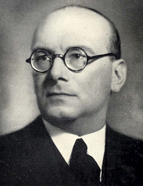

Alberto da Veiga Simões was born on 16 December, still in the 19th century, in 1888. December would also be the month in which he would leave this world, on the 1st. In the second half of the 20th century, in 1954. Never reaching his 66th birthday. He was the only son of a respected family of large landowners in Arganil. His father, António José Simões, was primarily a notary but also served as secretary of the Santa Casa for several years. His mother, Guilhermina Alves da Veiga, dedicated the best of her time to the family. Here, he saw the first light of day. Here, he will rest forever, in the local cemetery. After more than a decade in self-imposed exile in the French capital. After completing primary school in Arganil, his parents enrolled him at the Liceu Central in Coimbra. His fortune made it possible, and his son's intelligence recommended it. The first five years were especially rewarding for him. Veiga Simões excelled in his grades. However, the academic year 1903-1904 would mark a turning point in his academic life forever. He became interested and disinterested in subjects very different from those in the textbooks, with goals equally distinct from those recommended by the professors. Literature in general, and poetry in particular. Anything that could be published. Although the teachers didn't admire his daydreams and failed him "due to fail grades", his classmates elected him to represent them — both before the high school, the board of the Filantrópica [Philanthropy], and with the national authorities in their opposition to the reform of secondary education at the time. As for his parents, concerned about his scattered focus, they transferred him to another high school in the supposedly quieter town of Viseu. Hoping that the distance would calm him and steer him back towards his studies and the school compendiums. In vain! His drive would never waver, and his diverse interests would always extend beyond any official curriculum. Even so, he never failed again. He even found time to prepare and publish his first historiographical work. A monograph on Arganil, published in llustração Portugueza in 1906. He had not yet turned 18. Adulthood brought him back the Lusa-Athens. He began mingling with some of his former colleagues. And grew more distant from others. He also established new friendships. As long as they didn't jeopardise his ability to pass each of the five years of the Law degree in which he had enrolled. His parents would have surely warned him.
This work is financed by national funds through FCT - Foundation for Science and Technology, I.P, in the scope of the projects UIDB/04311/2020 and UIDP/04311/2020.
